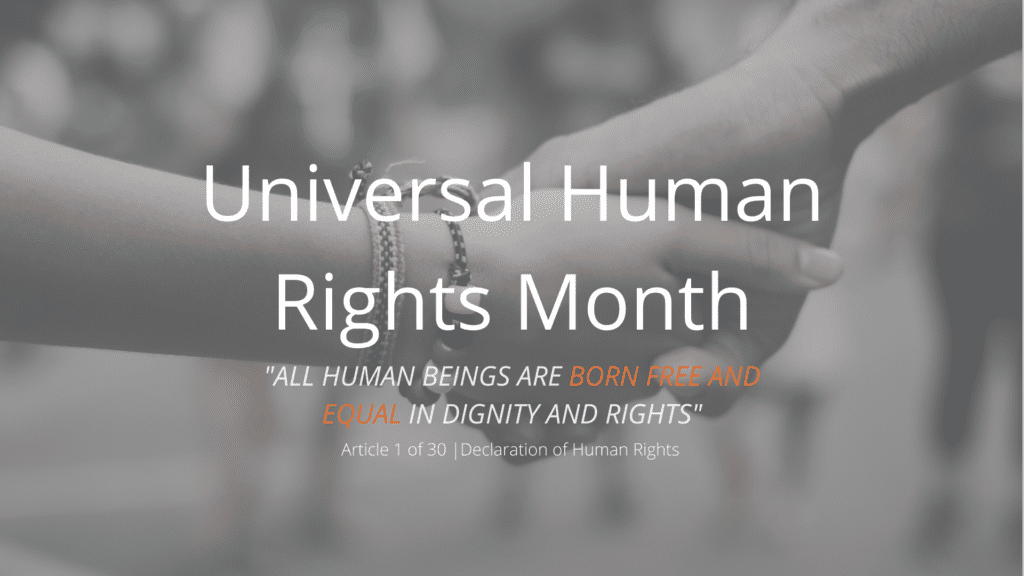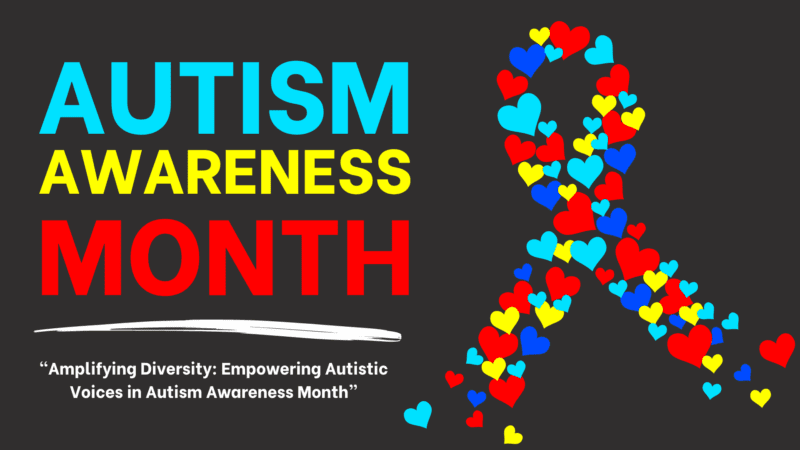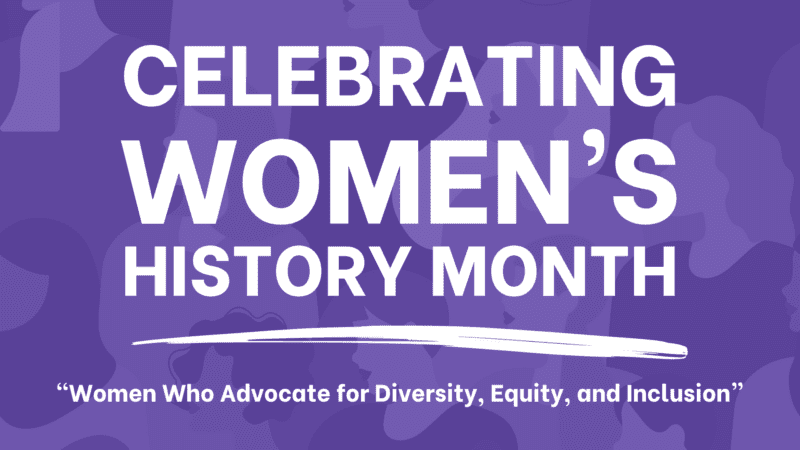
What is Universal Human Rights Month?
Universal Human Rights Month was created in 1948 when the United Nations wrote the Universal Declaration of Human Rights—a document with 30 articles containing inalienable rights humans hold upon birth. The Universal Declaration of Human Rights (UDHR) is a milestone document in the history of human rights. Drafted by the representatives with different legal and cultural backgrounds from all regions in the world, the Declaration was proclaimed by the United Nations General Assembly as a common standard of achievements for all peoples and all nations. It sets out, for the first time, fundamental human rights to be universally protected and it has been translated into over 500 languages.
- All human beings are born free and equal in dignity and rights. They are endowed with reason and conscience and should act towards one another in a spirit of brotherhood.
- Everyone is entitled to all the rights and freedoms set forth in this declaration.
- Everyone has the right to life, liberty, and security of person
- No one shall be held in slavery or servitude; slavery and the salve trade shall be prohibited in all their forms.
- No one shall be subjected to torture or cruel, inhuman, or degrading treatment or punishment.
- Everyone has the right to recognition everywhere as a person before the law.
- All are equal before the law and are entitled without any discrimination to equal protection of the law.
- Everyone has the right to an effective remedy by the competent national tribunals for acts violating the fundamental rights granted him by the constitution or by law.
- No one shall be subjected to arbitrary arrest, detention, or exile.
- Everyone is entitled in full equality to a fair and public hearing by an independent and impartial tribunal.
- Everyone charged with a penal offence has the right to be presumed innocent until proved guilty.
- No one shall be held guilty of any penal offence on account of any act or omission which did not constitute a penal offence, under national or international, at the time when it was committed.
- No one shall be subjected to arbitrary interference with their privacy, family, home, or correspondence.
- Everyone has the right to freedom of movement.
- Everyone has the right to leave any country, including their own, and to return to their country.
- Everyone has the right to seek and to enjoy in other countries asylum from persecution.
- Everyone has a right to a nationality.
- Everyone has the right to marry and to found a family.
- Marriage shall be entered into only with the free and full consent of spouses.
- Everyone has the right to own property alone as well as in association with others
- Everyone has the right to freedom of thought, conscience and religion and the right to change their religion or belief.
- Everyone has the right to freedom of opinion and expression.
- Everyone has the right to freedom of peaceful assembly and association.
- Everyone has the right to take part in the government of their country, directly or through freely chosen representatives.
- Everyone, as a member of society, has the right to social security.
- Everyone has the right to work, to free choice of employment, to just and favorable conditions of work and to protection against unemployment.
- Everyone has the right to rest and leisure, including reasonable limitation of working hours and periodic holidays with pay.
- Everyone has the right to a standard of living adequate for the health and well-being of themselves and their family.
- Everyone has the right to education.
- Everyone has the right freely to participate in the cultural life of the community, to enjoy arts and to share in scientific advancement.
- Everyone is entitled to a social and international order in which the rights and freedoms set forth in this Declaration can be fully realized.
- Everyone has duties to the community in which alone the free and full development of his personality is possible.
- Nothing in this Declaration may be interpreted as implying for any State, group, or person any right to engage in any activity or perform any act aimed at the destruction of any of the rights and freedoms set forth herein.
The United Nations drafted the Declaration of Human Rights in response to the end of World War II and the unspeakable horrors and human rights violations committed by the Germans and the Axis Powers. The document was created to specifically and unequivocally outline and protect human rights for all.
Defining human rights upon birth is incredibly important in ensuring that all human rights are protected. The adoption of the Universal Human Rights Month is a yearly reminder that all human beings are born free and equal in their dignity and rights no matter their race, color, sex, language, religion, or national origin.
How Can You Observe Universal Human Rights Month?
This month is a time to stand up against the oppression that marginalized groups still face and join together for the rights and freedoms of everyone. Prejudice, bigoted ideology, and hatred are all rooted in ignorance. The purpose of Universal Human Rights Month is to confront the ignorance with knowledge and learning.
As individuals, you can use this month to find common ground with people who do not look like you, speak like you, or share the same culture or identity as you do. Community and society work as a system. To have it properly function, to the benefit of everyone, we must learn that our differences are what make us stronger and that despite our differences, we all can share in the collective human experience.
To extend the advocacy further, here are a list of human rights charities and organizations that stand for and fight on behalf of human rights. You can read more about each organization and donate to any if you would like.





